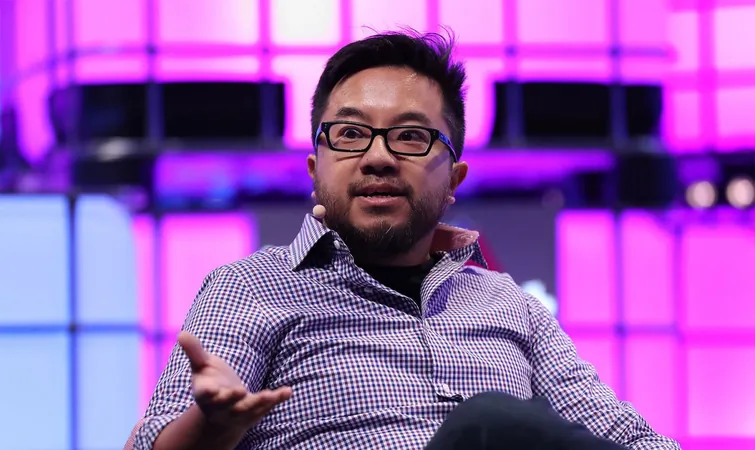
Y Combinator Faces Backlash After Backing Controversial AI Startup PearAI, Accused of Cloning Another Project
2024-10-01
Author: Chun
Y Combinator and PearAI Controversy
In a recent controversy that has sent shockwaves through the tech community, Y Combinator-backed startup PearAI has come under fire for launching what many claim to be a near-exact copy of another AI coding editor called Continue. The situation escalated quickly, drawing attention not only to PearAI but also to the Silicon Valley incubator itself.
The Emergence of PearAI
Founded by Duke Pan, PearAI came onto the scene with a bang over the weekend, thanks to a viral thread on social media platform X (formerly known as Twitter) and a YouTube video. PearAI's focus? An AI-driven coding editor that, as stated by Pan, is essentially a cloned version of Continue, which operates under the Apache open-source license.
Licensing Issues
Here’s where things took a turn: instead of adhering to the original licensing, PearAI initially imposed a new proprietary license, dubbed the Pear Enterprise License. In a strange twist, Pan later admitted that this new license was generated by ChatGPT—a detail that raised eyebrows across the tech industry. The open-source community prides itself on ideals of transparency, trust, and collaboration, making this decision particularly controversial.
Response and Backlash
In response to the backlash, Pan issued an apology stating PearAI will now offer its project under the same Apache license as Continue. However, the damage had already been done. The launch thread saw a flurry of mixed reactions, with many congratulatory messages overshadowed by sharp criticisms. Users accused PearAI of not innovating but rather replicating Continue, and X even added a community note clarifying that PearAI utilized Continue's code while merely changing the branding.
Continued Criticism
The backlash didn't stop there. PearAI's acknowledgment that they had indeed cloned existing work resulted in a wave of negative comments. Pan conceded that insufficient clarity in their communications contributed to the misunderstanding, admitting, “We screwed up critically by not being clear enough about this.”
Response from Continue and Y Combinator
Continue, the original project, did not remain silent in the matter. They issued a pointed statement about the importance of trust in the open-source community, warning against the careless handling of intellectual property.
Y Combinator’s CEO Garry Tan jumped to PearAI's defense, tweeting in support. He stated, “I don’t understand why people are dragging a new project when it’s literally an open-source Apache license,” ignoring the fact that this license was only adopted after the controversy erupted. This led to further criticism, especially since Y Combinator had already invested in two other AI coding editor startups, Void and Melty.
Concerns Over Y Combinator's Vetting Process
The critique of Y Combinator deepened among its skeptics. Some commenters on Hacker News expressed concern over the incubator’s vetting processes, questioning whether due diligence was being applied to understand licensing issues before funding projects.
Implications for the AI Startup Ecosystem
As the AI boom continues to attract eager investors, this incident serves as a crucial reminder of the importance of ethical considerations in the startup ecosystem. Both the speed and fervor with which venture capitalists are funding AI-related projects may exacerbate these types of controversies, leaving many to wonder what this means for the future of innovation and collaboration in tech.
Conclusion
As it stands, PearAI’s road ahead will be under intense scrutiny, and Y Combinator must address the underlying concerns raised from this situation to maintain its credibility in the tech world.

 Brasil (PT)
Brasil (PT)
 Canada (EN)
Canada (EN)
 Chile (ES)
Chile (ES)
 España (ES)
España (ES)
 France (FR)
France (FR)
 Hong Kong (EN)
Hong Kong (EN)
 Italia (IT)
Italia (IT)
 日本 (JA)
日本 (JA)
 Magyarország (HU)
Magyarország (HU)
 Norge (NO)
Norge (NO)
 Polska (PL)
Polska (PL)
 Schweiz (DE)
Schweiz (DE)
 Singapore (EN)
Singapore (EN)
 Sverige (SV)
Sverige (SV)
 Suomi (FI)
Suomi (FI)
 Türkiye (TR)
Türkiye (TR)